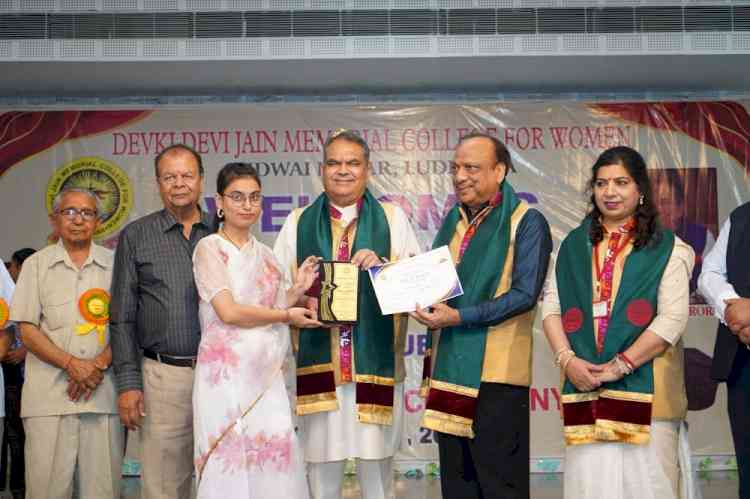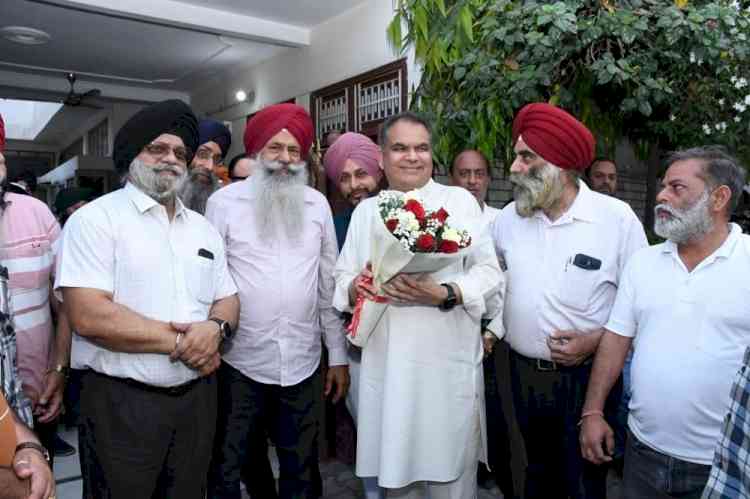Prompt police action can prove to be crucial for prelim inquiry in case of violence against women: ADGP Gurpreet Deo

Chandigarh: Sensitizing police personnel on how to considerately respond to cases of violence against women and provide support and protection to the women, Ms. Gurpreet Deo, ADGP, Community Affairs Division and Public Grievances said that prompt police action in the cases of violence against women can prove to be imperative to easily crack such cases. She was speaking on the topic 'Response of law enforcement agencies in case of women aggrieved by violence' during the second phase of the state level virtual training workshop organized by the Punjab Social Security, Women and Child Development Department on ‘Sakhi One Stop Centre'.
Ms. Deo said that although state police has been swiftly acting to provide relief to the victims of violence against women, but many such cases were not reported due to lack of awareness among women about their rights. Stressing upon the need to sensitize women about their fundamental rights, the ADGP categorically said that ‘Sakhi One Stop Centre' (OSCs) are being integrated with Toll free women helpline number-181 so that women affected by violence could be referred to OSCs. Apart from this, Ms. Deo stated that a dedicated women helpdesk in every police station is the need of the hour.
On the topic of 'Role of Police in Sensitively Handling Cases of Physical and Emotional Violence against Women: Learnings from Best Practices in India', former Director General of Police, Government of Haryana, Dr. K.P. Singh said that the emotional support of the police personnel gives women who are aggrieved by violence, hope for justice, and infuses them with will-power to fight against any form of injustice including violence. He said that for prevailing the sense of safety among the affected women, aspects to deploy women police personnel should also be considered.
To enable trainees to appropriately respond to the medical needs of women affected by violence, Dr. K.P.S. Kushwaha, Senior Faculty, Lok Nayak Jayaprakash Narayan National Institute of Criminology and Forensic Science, Ministry of Home Affairs said that evidence collection should be focused on scientific methods so that the culprit could be brought within the ambit of law and justice. He discussed the best practices for paramedical staff during medico-legal examination of the survivor in sexual assault cases.
Dr. Manmeet Kaur, Professor of Health Promotion in the PGIMER, School of Public Health and Professorial Fellow, The George Institute for Global Health, University of New South Wales (UNSW), Australia also spoke on the theme 'Recognizing and addressing violence against women within health care system', which is an often neglected yet very important aspect of violence against women and focuses on spaces outside the household where women can be traumatized. Dr. Reetinder Kohli, Former Chairwoman, Indian Women Network (IWN), Chandigarh gave tips to help the trainees understand the essential elements and practices of psychological counselling of women affected by violence, during the session 'How to establish a rapport with women aggrieved by violence'. Dr. Nayanika Singh, Assistant Professor, Mahatma Gandhi State Institute of Public Administration (MGSIPA), Chandigarh said that the utmost duty of the OSCs staff is to make efforts to normalize the traumatized women. She spoke on regulating women emotionally who have been victimized by physical and emotional violence, which can prove to be a turning point to solve the case at the earliest.
Giving concluding remarks, Mrs. Raji P. Shrivastava, Principal Secretary, Social Security, Women and Child Development said that the state government has set up ‘Sakhi One Stop Centres’ (OSCs) in all the 22 districts to provide integrated support and assistance to women affected by violence. These OSCs have been successfully running with dedicated staff and providing required support to the women in need.
Director-cum-Special Secretary Mr. Vipul Ujjwal said that OSCs are being run by the department to facilitate access to an integrated range of services including medical, legal and psychological support for victims. During these sessions, question and answer rounds were also held and the queries raised by the trainees were resolved by the experts of international repute. Ms. Priyanka Choudhary, Governance Fellow, DGR&PG, who has been involved in conceptualizing and organizing the workshop, has also presented a vote of thanks.


 cityairnews
cityairnews 








